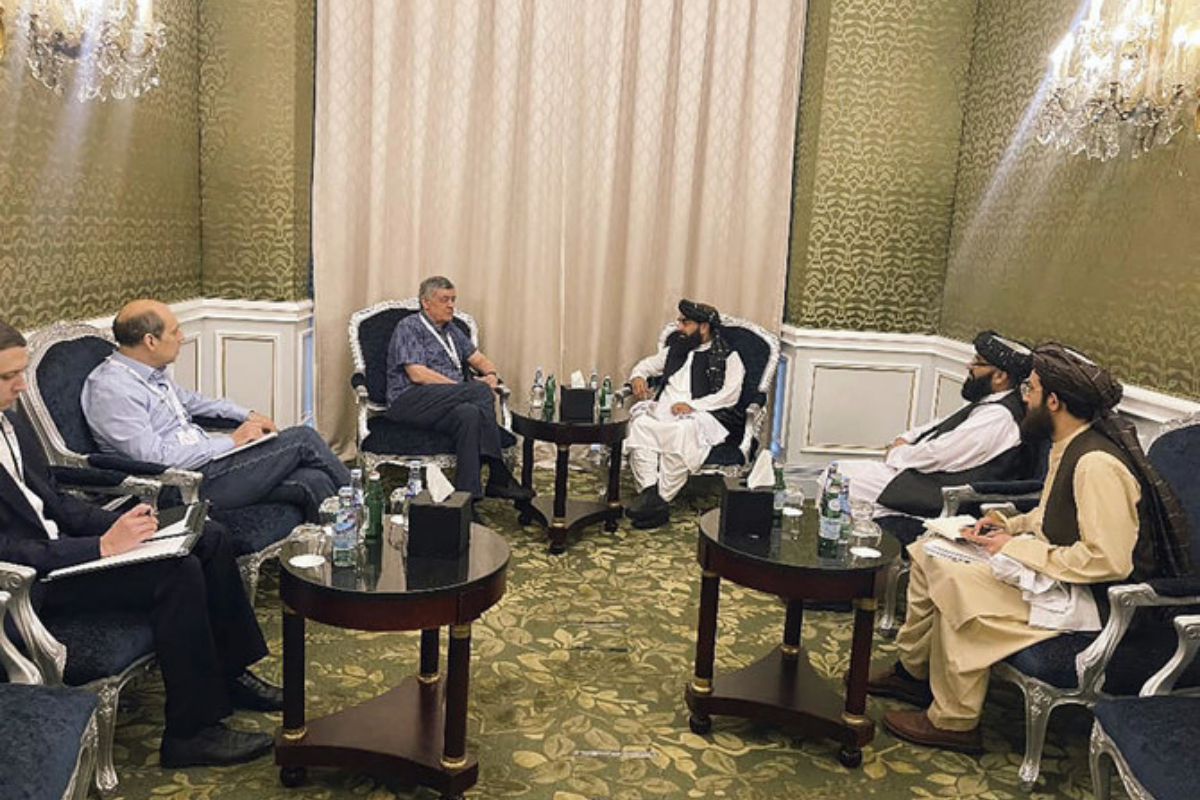Labour leader claps back at PM Sunak’s ‘Ayatollah and Taliban negotiations’ jibe
Starmer dismisses Sunak's argument, stating that many asylum seekers arrived in the...

Taliban seeks international support against Afghanistan sanctions
On Monday, Taliban authorities announced their intention to advocate for the removal of economic sanctions from the international community while attending a UN-hosted summit in Doha, marking their first participation with special representatives to Afghanistan.
The two-day meeting started on Sunday and marks the third summit held in Qatar in a little over a year, but it is the first to feature the Taliban authorities who took control of Afghanistan in 2021. Writing on X, formerly Twitter, senior foreign ministry official Zakir Jalaly stated that the Taliban government delegation would use Monday’s meetings to discuss “financial and banking sanctions” and the “challenges” these sanctions pose to Afghanistan’s economy.
Following an opening statement late Sunday by the head of the Taliban delegation, spokesman Zabihullah Mujahid addressed more than 20 envoys and UN officials.
“Afghans are asking why they are being ganged up on, based on unilateral and multilateral sanctions,” Mujahid said as he questioned whether ongoing sanctions were “fair practice” after “wars and insecurity for almost half a century as a result of foreign invasions and interference.”
The talks aim to discuss increasing engagement with the impoverished country of more than 40 million and coordinating a more comprehensive response, including economic issues and counter-narcotics efforts, following the Taliban’s return to power.
No other government has officially recognized the Taliban government in Kabul since it took power. The Taliban has imposed a strict interpretation of Islam, subjecting women to laws characterized by the UN as “gender apartheid.”
The inclusion of a Taliban delegation and the exclusion of civil society and women’s rights groups sparked outrage, with organizations accusing the UN and attendees of legitimizing Taliban government policies.
“Caving into the Taliban’s conditions to secure their participation in the talks would risk legitimizing their gender-based institutionalized system of oppression,” Amnesty International chief Agnes Callamard said in a statement ahead of the talks.
Mujahid, the Taliban spokesman, repeatedly stated that Islamic law guarantees the rights of all citizens. He urged diplomats to seek ways of interaction and understanding rather than confrontation, acknowledging “natural” policy differences.
“The Islamic Emirate of Afghanistan is keen on engaging constructively with Western nations as well,” Mujahid said.
“Like any sovereign state, we uphold certain religious and cultural values and public aspirations that must be acknowledged.”
Catch all the Business News, Breaking News Event and Latest News Updates on The BOL News
Download The BOL News App to get the Daily News Update & Live News.